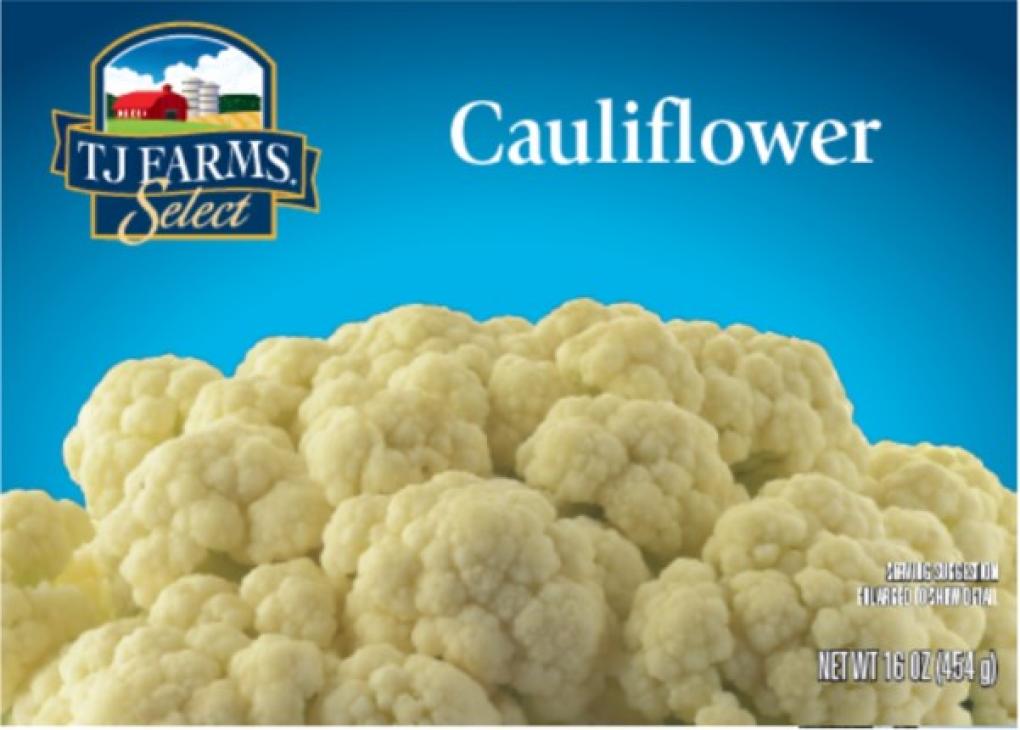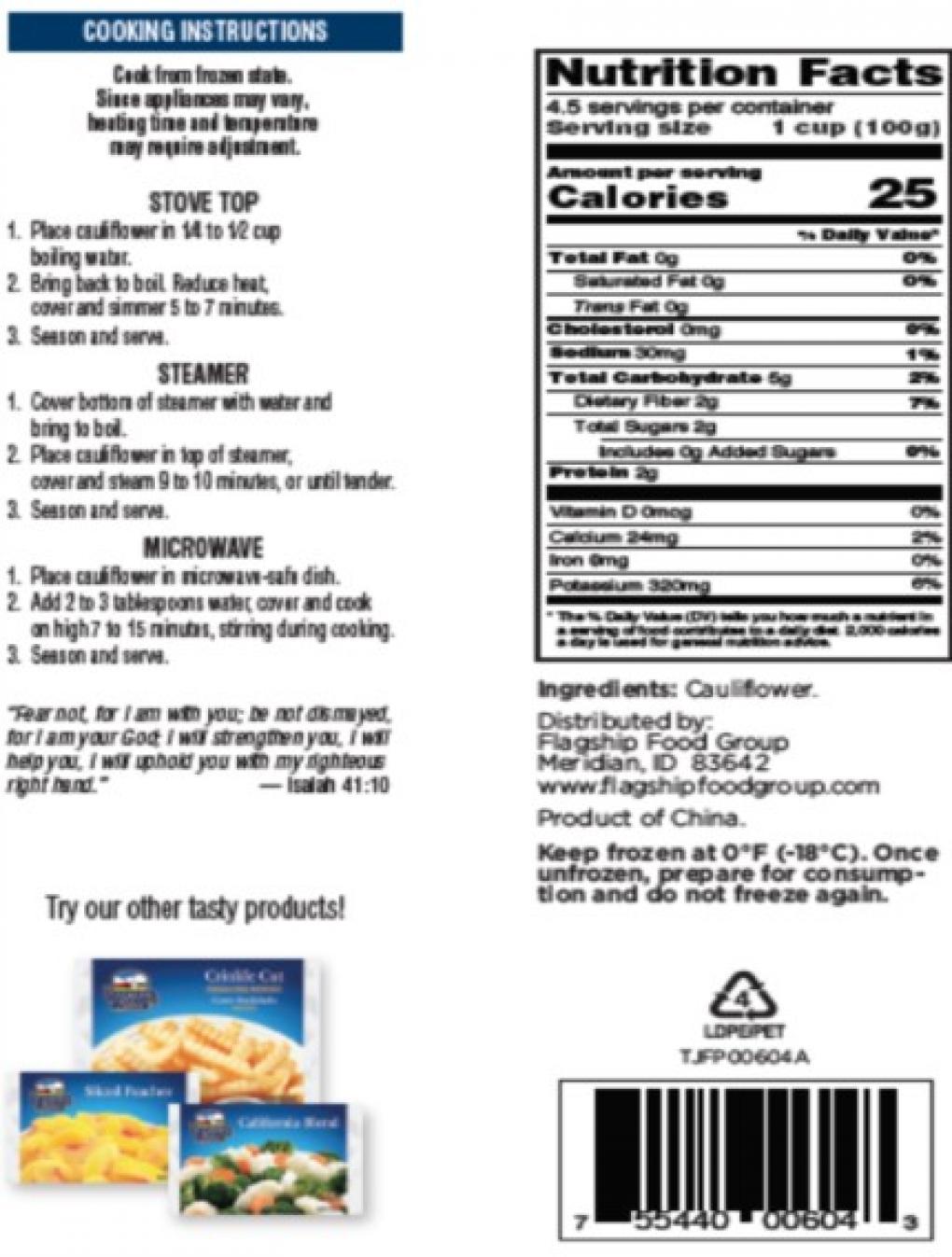On Nov. 24, 2021, Idaho-based company Flagship Food Group voluntarily recalled a limited number of cases of frozen cauliflower over concerns of possible contamination of a bacteria called Listeria monocytogenes, more commonly known as listeria.
Listeria is known to cause listeriosis, a sometimes-fatal disease in those with weakened immune systems, including young children and the elderly.
The U.S. Food and Drug Administration (FDA) reported that 16-ounce bags of TJ Farms frozen cauliflower under lot code 2077890089, UPC code 75544000604-3 were imported from China. Though no illnesses have been connected to date, impacted products were distributed in Pennsylvania, Tennessee, and Wisconsin.
Flagship Food Group, the company that operates the brand TJ Farms Select, noted that the recall was made after a single sample in a random test conducted by the Minnesota Department of Agriculture tested positive for L. monocytogenes. No other food products manufactured by Flagship Food Group have been recalled.
L. monocytogenes is a species of bacteria that is found in moist environments and soil and can survive — and even grow — while under refrigeration, notes the FDA. The pathogenic bacteria is responsible for listeriosis, an illness characterized by fever, muscle aches, nausea, vomiting, and diarrhea. More severe cases can cause loss of balance, convulsions, confusion, and even death.
“People infected with L. monocytogenes may start to see symptoms in a few hours or as long as two to three days after eating contaminated food. More severe forms of listeriosis may take anywhere from three days to three months to develop,” noted the FDA.
Pregnant people and newborn babies may be particularly susceptible to listeriosis, which could lead to miscarriage, stillbirth, and other severe health complications.
“Consumers who have any remaining product with the affected lot code described above should not consume it, but rather discard it. Retailers and consumers with questions may call the Flagship Food Group Consumer Center at 1-800-292-9600, which is open 8am-5pm MST, Monday-Friday,” wrote the FDA.
To prevent listeria infection in general, health experts advise setting the refrigerator to 40 degrees Fahrenheit and freezer to zero degrees. Sanitize the refrigerator and any items that may have come into contact with an infected item, regularly wash hands, and immediately clean up spills. Pets can also carry L. monocytogenes, so people with pets should avoid cross-contaminating human and animal foods and thoroughly clean dishes and eating areas after an animal has been fed.
Sources
Nutrition, Center for Food Safety and Applied. “Flagship Food Group Recalls Frozen Cauliflower Because of Possible Health Risk.” U.S. Food and Drug Administration, 24 Nov. 2021, https://www.fda.gov/safety/recalls-market-withdrawals-safety-alerts/flagship-food-group-recalls-frozen-cauliflower-because-possible-health-risk.
“Flagship Food Group Recalls Frozen Cauliflower Because of Possible Health Risk.” U.S. Food and Drug Administration, 24 Nov. 2021, https://www.fda.gov/safety/recalls-market-withdrawals-safety-alerts/flagship-food-group-recalls-frozen-cauliflower-because-possible-health-risk.
“Listeria from Food Safety for Moms to Be.” FDA, Apr. 2020. www.fda.gov, https://www.fda.gov/food/health-educators/listeria-food-safety-moms-be.
“Listeria (Listeriosis).” FDA, June 2021. www.fda.gov, https://www.fda.gov/food/foodborne-pathogens/listeria-listeriosis.


